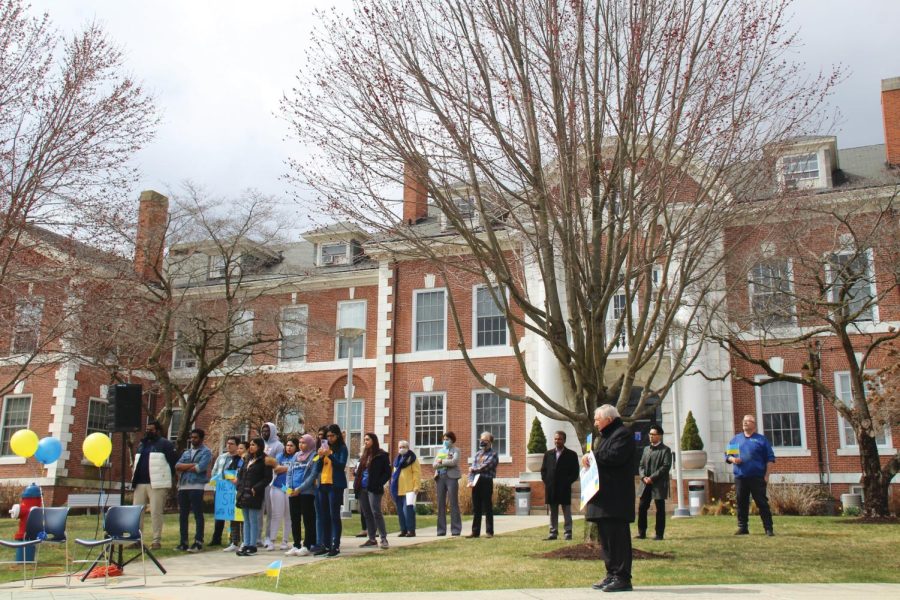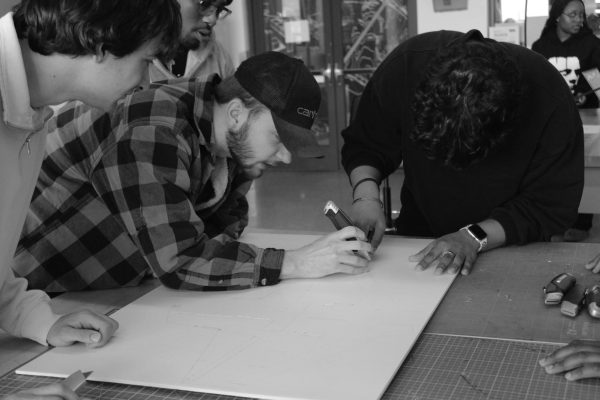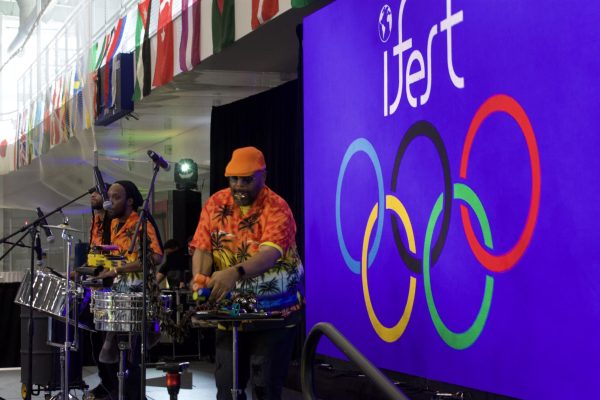University community unifies to support Ukraine war efforts
Members of the university community gather outside of Maxcy Hall in support of Ukraine, West Haven, April 1, 2022.
University graduate student, Arman Agwal, has encouraged those in the community to “come to support freedom, and to support life.”
On April 1, staff, students and individuals from the surrounding community gathered outside of Maxcy Hall to “bring people together on campus both to express opposition to what the Russian state was doing and also for us to show support for the people of Ukraine,” said organizer and history professor Bradley Woodworth.
A sea of blue and yellow filled the quad, from arrangements of balloons to the Ukraine flag flying in rows in the grass, and a large-scale flag draped between the arms of groups of students gathered in support. University community members of all backgrounds and ages congregated in unison to speak on and listen to the efforts of Ukraine and their impact on the rest of the world surrounding them.
The university’s marching band performed a number of songs, with sounds of Ukraine echoing throughout the academic side of campus. The crowd around the podium that stood in the center grew larger as the ceremony continued.
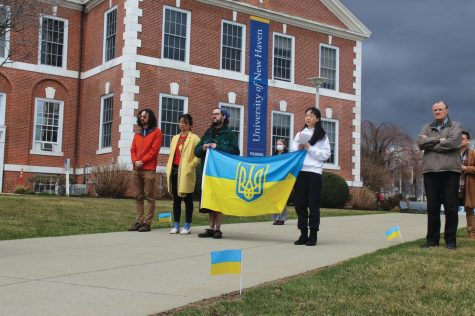
Attendees also heard first and second-hand perspectives about the activity in Ukraine from staff and students, varying from personal and anecdotal standpoints, and one involving academic discourse.
Matthew Schmidt, professor of national security, was one of the first to speak, who spoke in “honor, glory to Ukraine.”
When asking the crowd to consider the nature of this statement, he said, “What is it to glorify something? It is to sanctify it. How do you sanctify something? You sacrifice.”
He continued, saying, “When we say ‘glory to Ukraine,’ we are saying glory to the women and the men and the children who have sanctified what is Ukraine’s war of independence, and they will win,” eliciting a surge of audible support from his audience.
Andrii Kryvoruchko, a senior criminal justice major, spoke on his perspective as a Ukrainian with much of his life remaining overseas.
In part of an anecdotal insight into the thoughts and feelings of Ukrainians in the U.S., he said, “It’s painful to hear friends tell me how loud missiles are when they hit my hometown.”
Kryvoruchko continued to tell the crowd about his sister and grandmother, who recently fled from Ukraine to Poland, and in a call to action said, “Today, I urge the U.S. to open the borders to Ukraine… I also urge NATO to close the sky to prevent further casualties.”
Oksana Goroshchuk, a postdoctoral fellow with the Yale Medical School, also presented herself to speak at the rally. She drew back to Ukraine’s history of revolutions in 1990, 2004 and 2014, saying that there was a display of the democratic nature of the country through these events.
“I stand up against all the atrocities that are happening right now in my county,” Goroshchuk said. “Putin’s supporters are responsible for every raped and murdered woman, for every killed child and man, for every destroyed and looted home. It is not about love or hatred, it is about justice. The world has to help us stop the Russian army and return our cities.”
Toward the end of the event, Woodworth stood again before the community, and spoke in nuance on the conditions of Putin’s Russia which have, according to the professor, contributed to the recent warring events. He said that “the Russian people have been lied to by their government,” speaking on the ways that Putin holds control over all of Russia’s news outlets.
When speaking in retrospect after the event, Woodworth shared his satisfaction with the outcome of their efforts.
In preparation for the rally, Woodworth said that “we were strongly supported all throughout the process of organizing and holding the event,” something that he and Agwal, who co-organized the event, said to be very grateful for.
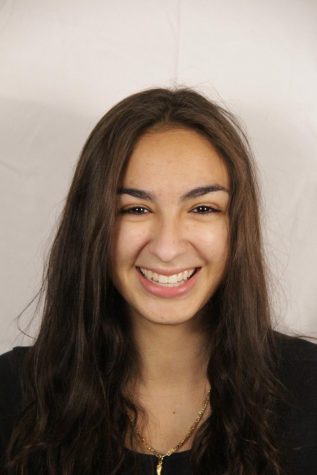
Mia Adduci is a senior studying communication concentrating in multi-platform journalism and media who began writing for the paper her first semester on...



